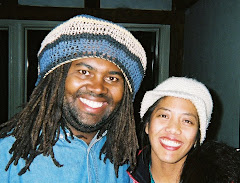Cyborgs, Artificial Intelligence & Robotics
DiscloseTruthTV2
Professor of Cybernetics at the University of Reading, England, Kevin Warwick discussed his research in artificial intelligence, robotics and cyborgs. While he acknowledged that cybernetics carries with it certain concerns over privacy and independence, Warwick was optimistic about the potential for positive applications of the science and urged further research to determine those benefits. Using the example of brain-to-brain communication using computers, Warwick mused that "this is not a technological leap. It's perhaps more of a philosophical leap, but we have to do it." Among the topics covered by Warwick over the course of the evening were the realistic possibility for a robot uprising, the medical advancements made possible by cybernetics, and his own personal experiments with a variety of robotic implants.
Looking at the current state of artificial intelligence, Warwick expressed dismay at some of the popular misconceptions surrounding AI. "I'm amazed when I hear people say 'artificial intelligence still can't make a cup of tea,'" he lamented, "that's absolutely ridiculous." Warwick countered that such simple tasks are meaningless compared to the true power of AI such as the speed of processing complex information. In that realm, Warwick declared," machine intelligence already has the upper hand." He also observed that many people cite Asamov's Three Laws of Robotics as a reason why robots cannot harm humans. A bemused Warwick pointed out the fictional nature of the rules and noted that "we see in the military that's what they're doing everyday" through the use of weapons like unmanned drones.
Warwick also detailed his own experiments with cybernetics which saw him implanted with a variety of devices over the years. In 1998, he became the first human to have an RFID chip implanted in their body. By linking the chip to the computer in his office, Warwick was able to control the lights, doors, and even had the computer greeting him when he entered the building. Taking things a step further, in 2002 Warwick had a device implanted into his nervous system that linked it to the Internet. This experiment allowed him to actually use his neural signals to control a robotic hand in the UK while he was visiting New York City. While such experiments may be unnerving to some people, Warwick confessed that he's more worried about the possibility of not being allowed to undergo the surgery necessary for the tests due to wary surgeons and insurers.
Biography:
Kevin Warwick is Professor of Cybernetics at the University of Reading, UK where he carries out research in artificial intelligence, control and robotics. His favorite topic is pushing back the frontiers of machine intelligence.
Kevin began his career by joining British Telecom with whom he spent 6 years. At 22 he took his first degree at Aston University followed by a PhD and research post at Imperial College, London. He subsequently held positions at Oxford, Newcastle and Warwick Universities before being offered the Chair at Reading, at the age of 32.
Wikipedia
Predictions and ethics
Main articles: Artificial intelligence in fiction, Ethics of artificial intelligence, Transhumanism, and Technological singularity
Artificial Intelligence is a common topic in both science fiction and projections about the future of technology and society. The existence of an artificial intelligence that rivals human intelligence raises difficult ethical issues, and the potential power of the technology inspires both hopes and fears.
In fiction, Artificial Intelligence has appeared fulfilling many roles, including a servant (R2D2 in Star Wars), a law enforcer (K.I.T.T. "Knight Rider"), a comrade (Lt. Commander Data in Star Trek: The Next Generation), a conqueror/overlord (The Matrix, Omnius), a dictator (With Folded Hands), a benevolent provider/de facto ruler (The Culture), an assassin (Terminator), a sentient race (Battlestar Galactica/Transformers/Mass Effect), an extension to human abilities (Ghost in the Shell) and the savior of the human race (R. Daneel Olivaw in Isaac Asimov's Robot series).
Mary Shelley's Frankenstein considers a key issue in the ethics of artificial intelligence: if a machine can be created that has intelligence, could it also feel? If it can feel, does it have the same rights as a human? The idea also appears in modern science fiction, including the films I Robot, Blade Runner and A.I.: Artificial Intelligence, in which humanoid machines have the ability to feel human emotions. This issue, now known as "robot rights", is currently being considered by, for example, California's Institute for the Future, although many critics believe that the discussion is premature. The subject is profoundly discussed in the 2010 documentary film Plug & Pray.
Subscribe to:
Post Comments (Atom)
















No comments:
Post a Comment